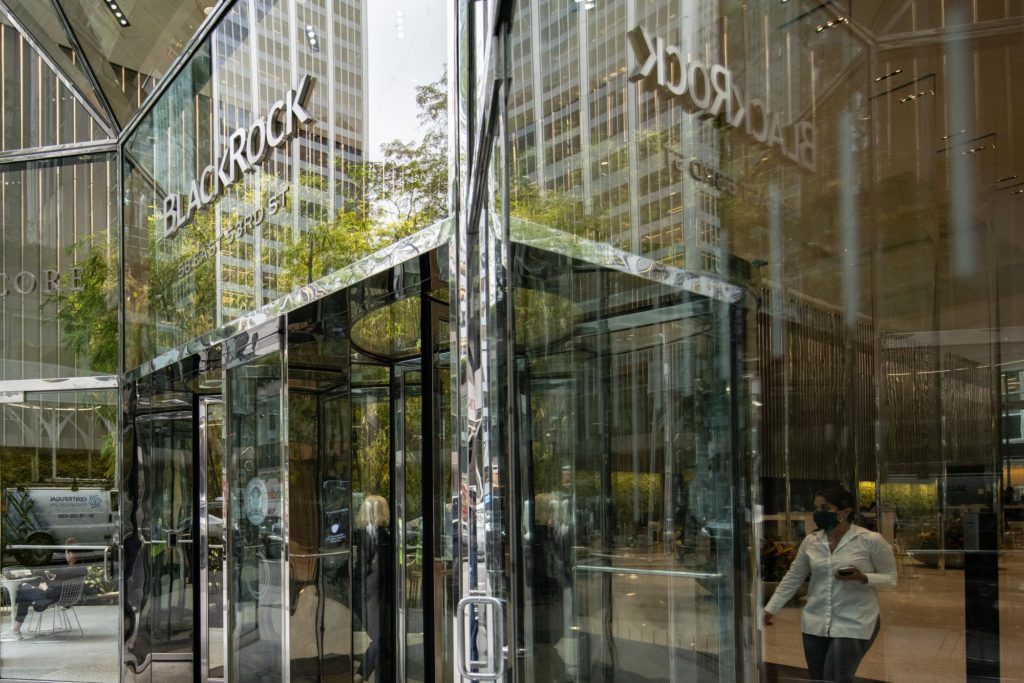BlackRock Inc. clients continued to pour money into the firm’s long-term investment funds in the fourth quarter, seeking to capitalize on the preceding rout in stock and bond markets.
(Bloomberg) — BlackRock Inc. clients continued to pour money into the firm’s long-term investment funds in the fourth quarter, seeking to capitalize on the preceding rout in stock and bond markets.
Net flows into those products totaled $146 billion for the period, the world’s biggest asset manager said Friday in a statement. That beat the $124 billion average estimate of analysts surveyed by Bloomberg. Total net flows, which include outflows from the firm’s cash-management accounts, were $114 billion.
The influx of client cash, coupled with a fourth-quarter rebound in equity and fixed-income markets after a bruising first nine months of the year, boosted assets under management at New York-based BlackRock to $8.59 trillion, up from $7.96 trillion at the end of September.
Investors have been buffeted by the threat of a recession and the efforts of the Federal Reserve to tame inflation by ratcheting up interest rates. The S&P 500 tumbled 19% last year, while the Bloomberg US Aggregate Index, which includes Treasuries, investment-grade corporate bonds as well as mortgage- and asset-backed securities, plunged a record 13%.
“We are not immune to complex and volatile market conditions,” Chief Executive Officer Larry Fink, 70, said in a separate memo to staff. “The current operating environment is unlike anything we’ve seen in decades, and 2022 was a year of huge transition for geopolitics and markets. We saw a rewiring of global supply chains, soaring inflation, hawkish monetary policy and a deepening of political polarization.”
Shares of BlackRock fell 2% to $739.10 at 9:39 a.m. in New York, paring their gain for the year to 4.3%.
Job Cuts
Earlier this week, BlackRock said it was responding to market uncertainty and the toll of last year’s rout by cutting about 500 jobs, or roughly 2.5% of the global workforce. It was the first round of dismissals since 2019, and senior executives said they needed to manage expenses prudently after expanding headcount over the past three years. On Friday, the firm reported a $91 million restructuring charge.
BlackRock expects staffing levels to remain mostly flat for 2023, Chief Financial Officer Gary Shedlin said in a conference call with analysts.
Fourth-quarter operating expense, which includes compensation, fell 5.1% to $2.91 billion from a year earlier.
Adjusted net income fell 18% from a year earlier to $1.36 billion, or $8.93 a share, beating Wall Street’s average estimate of $8.08. Revenue declined 15% to $4.34 billion, topping the $4.25 billion that analysts expected.
The net flows likely would have been higher were it not for moves by Republican officials in several US states who collectively pulled more than $3 billion from BlackRock’s funds after criticizing the company’s views on ESG investing. The firm has become a political punching bag from forces on both ends of the spectrum, with some on the right alleging its policies harm the fossil-fuel industry and others on the left arguing it’s not doing enough to respond to climate change.
Timeline: BlackRock Struggles to Escape From the ESG Crossfire
BlackRock is the largest issuer of exchange-traded funds, with $2.91 trillion in client assets at the end of the period. The company’s bond ETFs have benefited in recent months from investors adding money to the products as they navigate higher interest rates.
Clients pumped $47.1 billion into fixed-income ETFs in the fourth quarter, after adding $37 billion in the preceding period. Investors pulled $32 billion from BlackRock’s cash-management products, compared with net withdrawals of almost $40 billion in the third quarter.
(Updates with share price in sixth paragraph, CFO comment on headcount in eighth.)
More stories like this are available on bloomberg.com
©2023 Bloomberg L.P.










